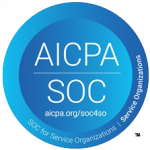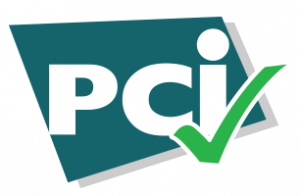We’ve noticed in recent months various media outlets featuring news and investigative journalism pieces about an increase in the number of complaints being filed against debt collectors and collection agencies. Just this morning the TV cable news featured a prominent attorney, who often appears on FNC to provide consumers tips on how to recognize illegal debt collection practices. He also advised consumers not to avoid debt collectors.
Various reports have indicated that complaints to the FTC regarding debt collectors have risen from about 95,000 in 2007 to 119,000 in 2009. Given the number of communications initiated by debt collectors, we find this number of complaints is not absurd. It seems common sense though to assume that with unemployment up so high in addition to the number of our citizens who are either underemployed — taking jobs for less money or part-time — we would have an increased volume of collection conversations with the public in general. We cannot with any statistical certainty tell you that the rise in complaints is proportional to the rise in delinquent debt; that would take some serious investigation. However, we can say for certain that there are people we know that, due to our economic realities, are finding themselves on the phone with a debt collector. Many of these consumers have never had such an experience previously.
Some of these news pieces have contained a degree of balance, pointing out that some agencies and the industry as a whole, take efforts to root out harassing practices, including cursing at consumers, calling repeatedly and hanging up either at their home or place of business, and, in extreme cases, calling them awful names. No legitimate and respectable collection agency will encourage or allow such practices within their company or by any of their employees. We certainly do not here. We have every employee on our team sign a commitment to the ACA collector pledge as a part of their employment requirements with us. The pledge reads:
The Collector’s Pledge
“I believe every person has worth as an individual
I believe every person should be treated with dignity and respect.
I will make it my responsibility to help consumers find ways to pay their debts.
I will be professional and ethical
I will commit to honoring this pledge”
The terrible and harassing events featured on nearly all of the news pieces are rare, not the norm. However, if a news organization decides to run a piece on this subject, they, of course, gravitate toward the sensational part of the story; boring stories do not get attention right?
Advice for Those Hearing from Debt Collection Agencies
PRC (Revco Solutions) President Geoff Miller has been a volunteer leader with an organization called the Crossroads Career Network for nearly two years. He has worked closely with people who are dealing with unemployment as they navigate the difficult economy we all face.
When some of the job seekers (whom we affectionately call career explorers) learn that he works for a collection agency, they often ask for advice on how to work with a creditor or a collection agency that is pursuing them for some debt. Mr. Miller thanks them for their willingness to open up about their situation and tries to give them the best advice possible.
“If I sense there is at least a modicum of trust in the situation, I begin to ask them some questions. I ask them about their conversations with collectors or communications in general with the agency,” Miller said. “I ask them about the nature of their debt, of the particular delinquent bill in question and of their finances in general. Often the reality is that some of these good people are making tough decisions about money and they must keep a roof over their heads, feed and take care of their families.”
With each conversation of debt collection advice, there are common points Miller always covers.
- Don’t avoid the collection agency.
- Stay in contact with the agency and your creditors. Keeping the dialog open empowers you and the creditors to help create either or short-term or long-term game plan (depending on the severity of the financial situation). Communication also helps the creditor or collection agency to make more informed decisions, empower you, the consumer, to be in a better position to work with them and eventually resolve the debt.
In our core, as men and women, as mothers and fathers, as employees and business owners, very few of us opened a credit line, financed a purchase, or funded an entrepreneurial business thinking one day we will have more bills than money and it will be so much fun to stick it to our creditors. That’s not the heart of the human spirit, nor is it the core values of the American way.
Yes, there are collectors who behave badly, some very badly and even illegally. Our state and federal government offices have resources in place to help consumers who are legitimately being harassed. Another fact is that is less than 5 percent of consumers in debt call a collection agency back after an attempted contact by letter or telephone. So, consumers in debt need to be willing to swallow some pride when they find themselves in the unenviable position of having more bills than money, and collectors must be trained and prepared to behave and perform in a highly professional and ethical manner when they communicate with consumers. It is a delicate balance of trust that must be maintained by all involved.
Life Happens
Even those with high personal credit scores can at times find themselves contacted by a collection agency. For example, Mr. Miller moved from one state to another in 2008 and overlooked a bill. The creditor either did not or could not take the steps to find their new address and sent the bill to a collection agency. The collection agency found his current address and mailed me a collection notice. I quickly called them, gained the specifics on the bill and paid it. That very same year Mr. Miller received services from a company for some maintenance on my home. The service provider never completed the work properly, and Miller would not pay the bill. He tried to negotiate with the business owner who refused. Six months later, the account was placed with a collection agency. Again Miller responded quickly to them and provided all the documentation regarding the dispute and advised them in writing that he would not be paying. In either case, he never avoided the creditor or the collection agency.
More than ever, when talking to consumers in debt, many collection agencies that are making real efforts to compete and perform with professionalism and high ethics. They are doing so by training their collectors and staff to use a non-combative and consultative approach. This approach is designed to help the consumer explore ways or plans for paying off their debt via other avenues of cash, debt consolidations, short or long-term payment plans, etc. Whether your business currently works with a collection agency plans to expand such use or even begin using one for the very first time, we recommended you ask the agency’s management team how they are working with consumers in debt.
Those of us in the Accounts Receivable Management profession who do our job well know that we are having a positive impact for our clients, for consumers and for the economy as a whole. Various independent studies have been conducted that provide the positive financial impact debt recovery has on the prices of goods and services to businesses and consumer alike.
The reality is that there are some collectors out there who do their job in unfair, unethical, and even illegal ways – but they are the rare exception and not the norm. There are also many consumers in debt who do not communicate with their creditors or the collection agencies. The debt collection process is a two-way street and a relationship that requires professionalism and ethics from everyone involved: creditors, consumers and yes, collection agencies.






